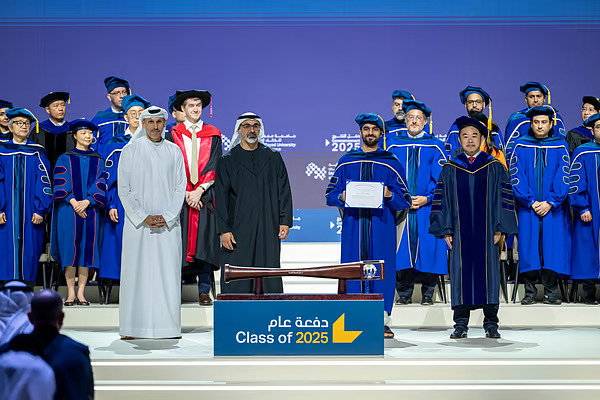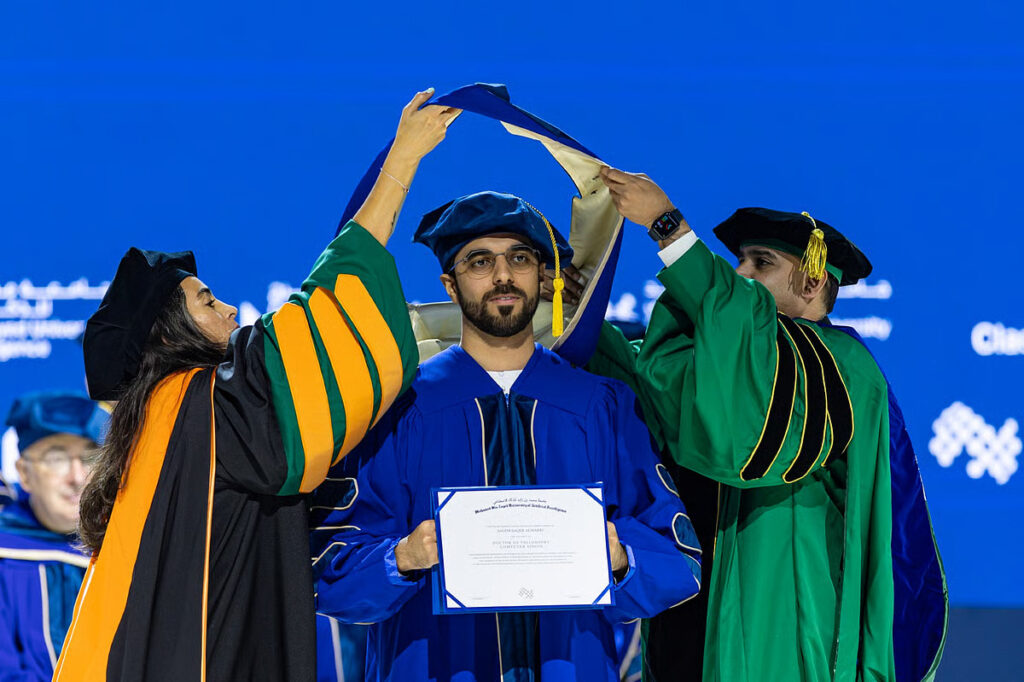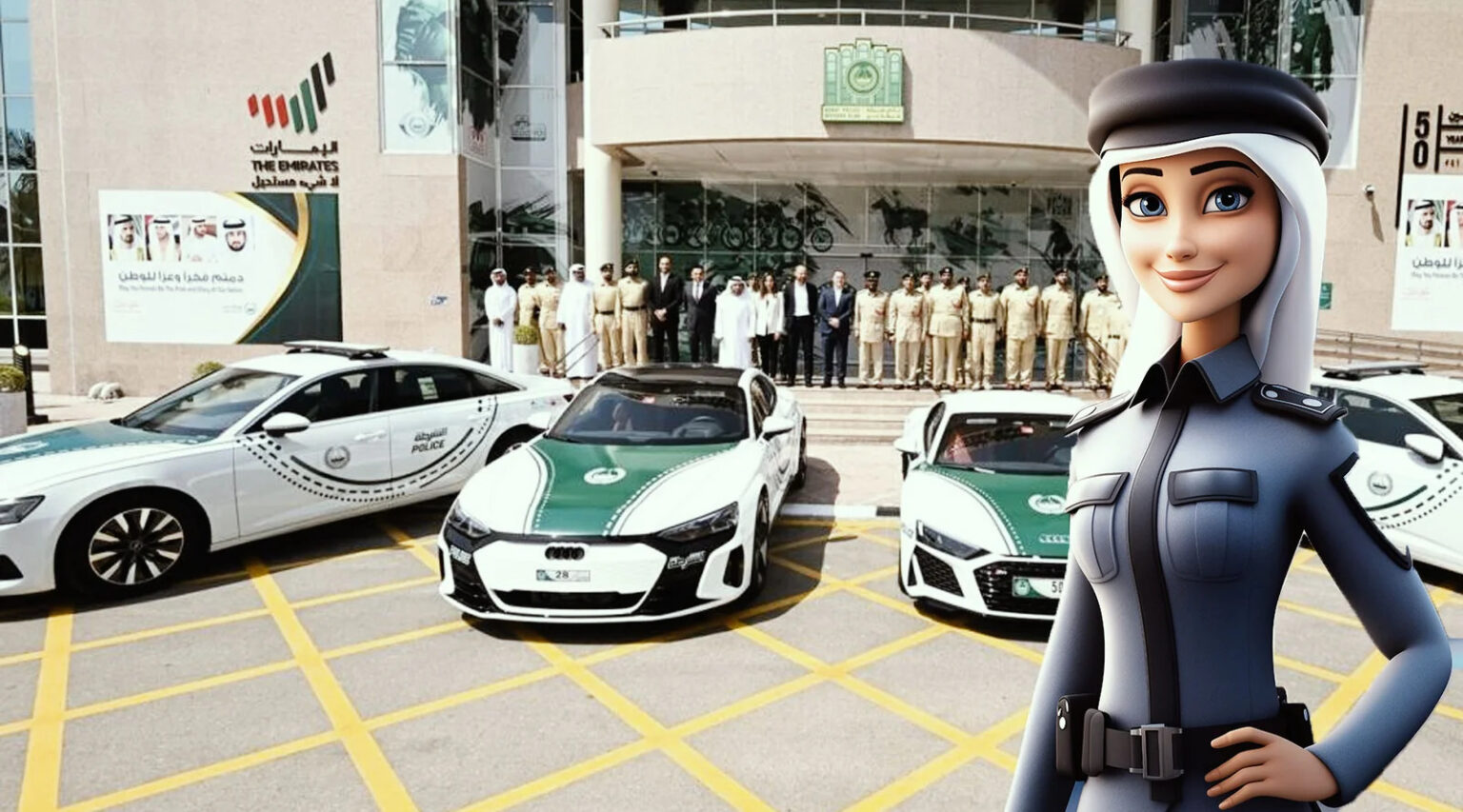An inventive Dubai student has built an advanced AI system that may assist in identifying crimes before they occur. Dr. Salem AlMarri, an official at Dubai Police and the first Emirati to possess a Ph.D. from MBZUAI, has built a model that can immediately notice small changes in a person’s actions suggesting criminal or risky situations. With this innovation, authorities can find out about threats ahead of time, before anyone formally reports them.
Table of Contents
A Smarter Eye on Public Safety
The key to AlMarri’s research lies in a question that suggests serious consequences: What does it actually mean when you instinctively think something seems wrong? The goal of AlMarri’s AI is to automatically identify subtle and unusual actions by people instantly which is a challenge for regular security systems.
Nowadays, we can recognize the appearance and motion of both people and objects. What can we make of things that are out of the ordinary?” AlMarri explained. People walking in unusual manners might have something on their mind. There could be an emergency because of an accident, a hazard or a fight happening.

Thanks to video and audio information, the AI can catch incidents like robbery or assault, even if they appear to be normal activities. If someone takes money from a cashier while pretending to be at ease, a common security camera might not catch the signs. However, AlMarri’s system is able to observe small actions, like how a person stands, speaks or moves, that could indicate danger.
Training an AI to Sense Trouble
It was not easy to create the AI. AlMarri set up numerous experiments using real-world data of diverse kinds. An important problem was that there were no clear points to indicate that an action was suspicious in the videos I reviewed. So, he put together a new record of scenes by mixing clips of people in malls, accidents and fights on streets so that the system would recognize the shift from normal to abnormal.
He mentioned how common problems in the field such as bad visibility or distorted sounds, are dealt with by modern policing. If conditions are blurry with a lot of noise, it’s likely that the model will not produce good results, he observed. “This is why we taught our neurological system to depend on one pathway if the other is unable to work.” Being flexible in foggy conditions, at night or with self-driving vehicles may make a big difference.
Inspired by Legacy, Driven by Purpose
Being creative with inventions runs in the family for AlMarri. His father, who was an engineer, developed futuristic inventions like a wind turbine without screws and a computer setup for anyone, even without hands, before these innovations were widely used.
According to AlMarri, it was his own personal goal to match the achievements he had made. In 2016, when he started with Dubai Police, he first focused on robotics and drone applications and then moved on to AI education, realising that the department was collecting more and more data. “Everything was happening so quickly,” he felt.
After finishing a Master’s degree at Rochester Institute of Technology, AlMarri became a member of MBZUAI’s inaugural Ph.D. group in computer vision, assisted by Professor Karthik Nandakumar. According to him, the experience completely influenced his thinking.
From Research to Reality
Even though AlMarri acknowledges that Dubai Police hasn’t implemented the AI system yet, he is still hopeful. He said that police were doing an excellent job in using smart systems. The technology does what it is meant to do. The technology can be put into action. It’s up to each person to decide how they want to use their money.
When he goes back to duty, he will give a report of his findings to the senior leadership. Since Dubai Police has already embraced AI on a global scale, AlMarri thinks the agency will gain from the results of his study. ‘We’ll be able to see how much of a difference it made if we have this discussion a year from now,’ he added.
From Footage to Forecast
To build the system, AlMarri ran thousands of experiments on data that was acquired from various sources. Miller designed a special training approach by mixing scenes of normal malls with scenes of fights or accidents on the street or highway. Thanks to this, the model was able to identify differences between ordinary events and unusual cases. The model stood out because it could analyze data with errors.
When there are problems such as on roads that are too foggy or when recordings are too noisy, the AI uses the present modality to function well. He pointed out that models usually struggle when there is heavy fog or sound distortion. So we made sure our systems can function if one of the inputs is broken. This becomes valuable for real cases such as cars driving on their own or for security cameras used in dark environments.
Also Read: Top 7 Places Serving the Best Mandi in Dubai
What Are The Future Possibilities for Crime Detection AI?
After completing his academic work, AlMarri plans to go back to Dubai Police to present his findings to the top management. Even though the AI model has not been implemented, he thinks it would boost the force’s advanced crime prevention methods. Dubai Police has progressed a lot in using AI. He said that, in a year from now, we will be able to notice the results of our discussion.

AlMarri plans to carry on publishing scholarly works, offering support to young talents in the UAE and proposing solutions that help the country. Being the first Emirati Ph.D. student from MBZUAI means I have to take responsibility, he stated. I think of research as a way to share my knowledge both with science and with the UAE.

